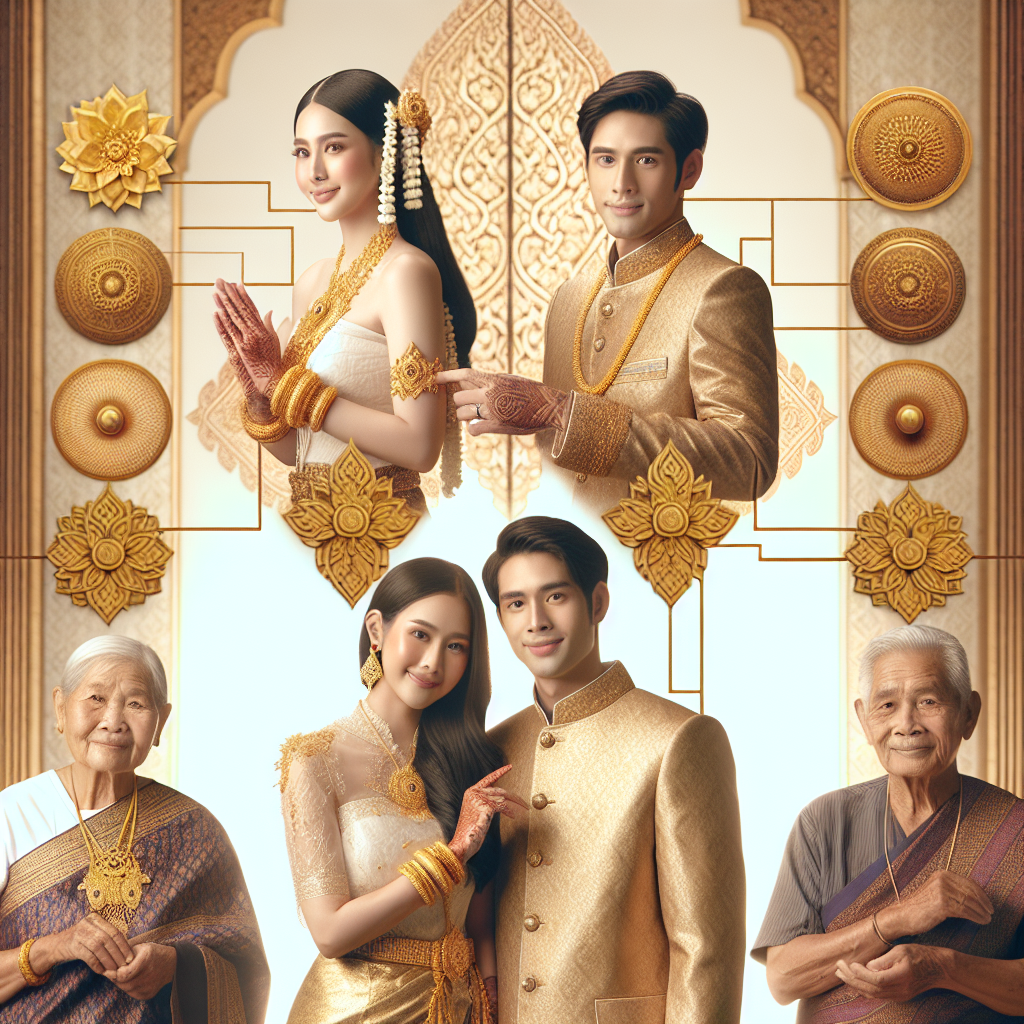The Role of Family in Thai Marriages: Balancing Love and Tradition
In the vibrant tapestry of Thailand’s culture, where ancient customs converge with modern life, the institution of marriage serves as a significant milestone in the lives of many individuals. Unlike in many Western societies where individual choice takes precedence, Thai marriages often embody a harmonious blend of personal affection and familial obligation. This intricate balance raises important questions about the role of family in the marriage process, revealing both cultural nuances and the impact of evolving social norms.
The Cultural Context
Thailand’s intricate social structure is heavily influenced by Buddhism, which promotes interdependence among family members. In this context, a marriage is not merely a union between two individuals, but rather an alliance between two families. Often, parental approval is not just encouraged—it is expected. In the Thai tradition, the blessings of parents are seen as essential for the couple’s future happiness, making the family’s role pivotal in marital decisions.
Historical Perspective
Traditionally, Thai marriages were often arranged, with the families negotiating terms and ensuring compatibility between the families’ social status, financial situations, and religious backgrounds. However, over the past few decades, broader global influences and shifts towards individualism have altered this dynamic. Young couples increasingly seek love marriages, yet family involvement remains significant.
In previous generations, marriages were a matter of family reputation and consideration of economic security. The dowry system, or “sin sod,” exemplified this practice, ensuring the bride’s family received compensation for the loss of their daughter. The dowry system remains a custom today, causing potential friction between personal desire and familial expectation.
Modern Changes in Marriage Dynamics
The advent of Western cultural influences has gradually introduced a range of new ideologies and practices, resulting in a quieter revolution within the realm of Thai marriages. Love marriages, where couples choose each other rather than through family negotiation, have become increasingly common, particularly among urban youth. However, even in love marriages, family acceptance is often a pivotal factor.
The internet and social media have fundamentally transformed how Thai people meet and communicate. Dating apps and platforms allow couples to connect independently, yet they often still negotiate their relationships with family support in mind. This modernization has created a new layer of complexity in how family involvement plays out, leading to conflicts between traditional expectations and personal desires.
Family Expectations and Considerations
In the Thai cultural framework, family expectations can be overwhelming. Not only do parents influence the decision of a life partner, but they also have the power to impact the relationships significantly. For many couples, the need for parental approval often leads to compromises, whether in choosing the partner, wedding details, or future family planning.
One of the major sticking points is the expectation of continuing familial legacies. Couples are often under pressure to produce grandchildren, aligning with societal beliefs that family lineage and continuity are paramount. This expectation can contribute to stress for couples trying to balance love, personal aspirations, and family obligations.
The Role of Ceremony and Ritual
The wedding ceremony in Thailand is a grand affair filled with rich traditions that emphasize the role of family. Traditional Thai weddings often commence with a Buddhist ceremony, where the couple kneels before monks to receive blessings. Families actively participate in these rituals, serving as witnesses to the sacred union, signifying their support and approval.
Moreover, traditional ceremonies include symbolic acts that receive the families’ blessings. Water-pouring ceremonies, a cherished tradition, represent the merging of two families. Such rituals epitomize the collective nature of the marriage, elevating family roles from mere spectators to central figures that guide the couple’s journey.
Navigating Conflicts
The balance between familial expectations and personal desires can lead to conflicts. For instance, if a couple chooses to marry without their parents’ blessing or outside traditional parameters, the resulting discord can strain relationships. Young couples often find themselves in a dilemma: adhere to their values and wishes or follow their family’s blueprint for marriage.
Communication becomes essential in resolving these conflicts. Couples must negotiate their needs against their families’ expectations, fostering an understanding of their desires while appreciating the significant role that family plays in Thai culture. This dialogue can ultimately strengthen familial ties, though it may be fraught with challenges along the way.
The Future of Family Involvement in Thai Marriages
As Thailand continues to evolve socially and economically, the landscape of marriage is bound to change. Engagements in urban areas increasingly reflect a blend of tradition and modernity, with young couples often seeking ways to honor family customs while embracing personal choices. This trend hints at a future where familial roles may adapt to foster more supportive arrangements rather than dictatorial involvement.
Educational initiatives and the increasing awareness of individual rights may empower many individuals to express their desires and negotiate better understanding with family members. Space for discussions about the evolving nature of marriage will likely pave the way for more progressive perspectives, thereby allowing younger generations to embrace love while respecting the cultural fabric of their family heritage.
Conclusion
Ultimately, marriage in Thailand is a delicate tapestry interwoven with love and reverence for tradition. The role of family is pivotal as it shapes the union between partners and influences the journey ahead. While the winds of change bring new ideas and individualism into the conversation, the essence of family—rooted in connection, obligation, and support—remains a cornerstone of marriage in Thai culture.
As the nation continues to navigate the complexities of modernity, the challenge for couples will be striking the right balance between honoring familial traditions and pursuing their own paths to love. It is through this ongoing negotiation that Thai marriages will continue to thrive, embodying the richness of familial bonds while letting love flourish on its own terms.
https://open.ai/bd4ece4ffa9991746efe97628ab8771d
